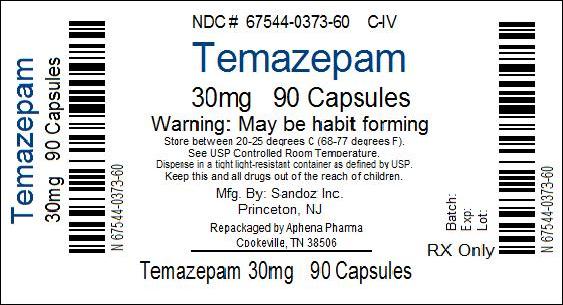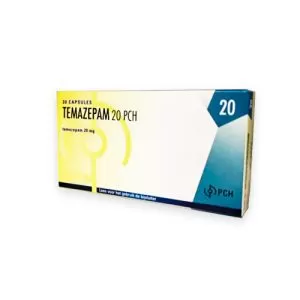Reliable Sleeping Disorders Medications for a Restful Night's Rest
Sleep problems poses a substantial challenge for many people, usually leading to a decrease in overall wellness. A range of medicines, both prescription and non-prescription, exist to address this pervasive concern, varying from conventional sedative-hypnotics to extra modern choices. The performance and safety and security of these alternatives can differ greatly among people. Comprehending the nuances of each type, along with the possible threats included, is crucial for making notified choices regarding treatment. This expedition will certainly uncover one of the most suitable choices and considerations to make certain a truly corrective evening's rest.
Kinds Of Insomnia Medications
Countless kinds of medications are available to deal with sleeplessness, each created to target specific facets of sleep disruption. Mainly, sleeping disorders medicines can be categorized into two major groups: sedative-hypnotics and non-sedative options.
Sedative-hypnotics, that include benzodiazepines and non-benzodiazepine rest aids, are typically recommended to induce rest. Benzodiazepines, such as diazepam and lorazepam, job by boosting the results of the neurotransmitter gamma-aminobutyric acid (GABA), leading to boosted sedation. Non-benzodiazepine medications, like zolpidem and eszopiclone, are created to give a quicker start of rest with potentially fewer adverse effects and a reduced risk of dependancy contrasted to traditional benzodiazepines.
On the various other hand, non-sedative choices consist of drugs like melatonin receptor agonists, which imitate the natural hormonal agent melatonin, and certain antidepressants that possess sedative buildings. These options may be more appropriate for people with coexisting mood conditions or those that like to avoid standard sleep medications.

Usual Prescription Alternatives
A number of usual prescription options are offered for treating sleeplessness, each with distinctive mechanisms and impacts. Benzodiazepines, such as temazepam and lorazepam, are widely suggested for their sedative buildings. They improve the effects of the natural chemical gamma-aminobutyric acid (GABA), advertising relaxation and sleep onset. Their long-term use is frequently discouraged due to dangers of reliance and tolerance.
Non-benzodiazepine hypnotics, including zolpidem and eszopiclone, are liked choices. These medications target certain receptors in the mind, causing quicker start of sleep with a reduced threat of reliance compared to benzodiazepines. Nonetheless, they might still cause adverse effects such as wooziness or cognitive problems.
Melatonin receptor agonists, such as ramelteon, offer an additional option by resembling the activity of melatonin, a hormone that regulates sleep-wake cycles. This class of medication is non-habit developing and is especially beneficial for people with body clock problems.
Lastly, specific antidepressants, consisting of trazodone and amitriptyline, might be prescribed off-label for sleeplessness because of their sedative results. Each of these choices must be gone over with a healthcare company to identify one of the most proper treatment based upon individual demands and potential negative effects.
Over-the-Counter Solutions
Over-the-counter (OTC) solutions for sleep problems are often looked for by people trying to find alternatives to prescription drugs. These solutions often include active ingredients that advertise leisure and help sleep onset. Typical OTC options consist of antihistamines such as diphenhydramine and doxylamine, which are effective in inducing sleepiness. While they might supply temporary alleviation, customers need to beware of prospective negative effects, including daytime grogginess and impaired cognitive feature (Temazepam 20mg UK).
An additional popular OTC option is melatonin, a hormone normally produced by the body that manages the sleep-wake cycle. Melatonin supplements can be specifically efficient for those experiencing browse around this site jet lag or shift work-related sleep disruptions. They are normally well-tolerated, although the optimal dosage can differ among people.
Natural supplements, such as valerian root and chamomile, are additionally readily available in the OTC market. These all-natural products are thought to have soothing results, though scientific proof sustaining their efficacy is combined. It is crucial for customers to talk to health care professionals prior to utilizing any type of OTC sleeping disorders medicine to make certain security and stay clear of interactions with other medicines. Eventually, while OTC services can be useful, they need to be utilized thoughtfully and as component of a thorough strategy to rest health.
Natural Solutions and Alternatives
The pursuit of restful sleep has actually led numerous people to discover natural remedies and choices that may use alleviation from sleep problems. Different options, often originated from alternative techniques and conventional practices, have obtained popularity among those seeking non-pharmaceutical treatments.
Natural supplements such as valerian passionflower, origin, and chamomile are regularly used for their calming buildings. Valerian origin, particularly, has actually been studied for its possible to improve rest high quality and reduce the time it requires to sleep. Chamomile, generally eaten as a tea, is renowned for its moderate sedative effects, making it a calming choice for evening leisure.
Furthermore, way of life alterations can substantially affect sleep top quality. Practices such as yoga exercise and reflection advertise leisure and lower tension, potentially reducing sleeplessness signs. Aromatherapy, using crucial oils like lavender and bergamot, is an additional opportunity that some people discover valuable in producing a comforting sleep atmosphere.
While these natural remedies may offer alleviation, it is vital to approach them with understanding and speak with a medical care expert, especially when combining with various other treatments. Each person's action may differ, emphasizing the relevance of customized approaches for accomplishing restorative rest.
Tips for Safe Usage
When taking into consideration the use of sleeping disorders medications, it is essential to prioritize security to lessen possible dangers and enhance effectiveness. Speak with a health care specialist to discuss your details sleep problems, existing medical problems, and any various other medicines you might be taking. This can help identify the most proper drug and dose for your needs.
Second of all, adhere strictly to the prescribed dosage and timing. Overuse or misuse can cause dependency or negative side effects. It is also suggested to prevent blending insomnia medications with alcohol or recreational drugs, as this can dramatically raise the danger find out of unsafe interactions.

Final Thought


Sedative-hypnotics, which consist of benzodiazepines and non-benzodiazepine click over here now rest help, are typically suggested to cause sleep. Non-benzodiazepine medicines, like zolpidem and eszopiclone, are developed to supply a quicker start of rest with potentially less side results and a lower threat of dependancy compared to typical benzodiazepines.
These drugs target specific receptors in the brain, leading to quicker start of sleep with a lowered risk of reliance compared to benzodiazepines. Seek advice from a healthcare specialist to discuss your specific rest problems, existing clinical conditions, and any type of various other medications you may be taking.Additionally, check your sleep patterns and side impacts closely.